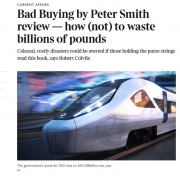Greensill / Gupta – Might this Be a Whole New Type of “Invoice Fraud”?
We’ve written a couple of times about the Greensill affair, and now more is emerging about another key player in the financial scandal. Greensill in effect lent billions to Sanjeev Gupta, creator of the GFG Alliance of steel businesses. That appears to have been based on both financing the invoices where GFG owed money to their suppliers, and also making early payment to gupta’s firms where GFG invoiced its own customers.
But the Financial Times, which has been instrumental in exploring matters, reports that Grant Thornton, the administrator for Greensill, has contacted some GFG “customers”. Clearly, they in theory owe Greensill money. However, “some of them say they did no business with Gupta”. In other cases, there are allegations that the customers were friends or associates of Gupta.
If this is true, it seems that Greensill was advancing money to GFG based on their invoices which had in theory been issued. Greensill would collect the money owed from the customers in line with payment terms. So note this is financing Gupta based on its sales, rather than improving its cash flow by helping on the purchase side. But if these invoices – or some of them – were fake – then we have a real fraud, and Greensill obviously won’t be able to collect its debts. Maybe Greensill was an innocent victim, being told by GFG these were real customers and real debts. Or maybe not.
Anyway, this link with supply chain finance is for me potentially a new type of invoice-related fraud. I must admit I did not cover this in Bad Buying, but it might be in the 2nd edition / follow-up!
The more usual invoice frauds that I describe in my book fall into three categories.
- Fake invoices are created, submitted and authorised by someone inside the organisation. The money is paid to firms (probably set up for this purpose) which the insider(s) controls.
- Fake or inaccurate invoices are submitted by an external party, either “on spec” in the hope that the internal systems are poor and they get paid, or to be authorised by an accomplice internally. The supplier may even be genuine, but the amount invoiced may not reflect the actual goods supplied or work done.
- Invoice mis-direction, where the fraudster persuades the firm to pay a genuine invoice to the fraudsters bank account rather than to the real supplier’s account.
“Fake invoice” fraud by insiders happens in the private sector, in government, and even in the charity sector. And it can be the most unlikely people – as in this case (taken from my book), where the former head of counter-fraud at Oxfam, the charity that fights poverty globally, was jailed after stealing more than £64,000 from the organisation.
Edward McKenzie-Green, 34, defrauded the organisation while investigating fellow charity workers in earthquake-hit Haiti. He filed fake invoices from bogus companies, making £64,612 in nine months before resigning because of unrelated disciplinary proceedings. The scheme was discovered after an internal inquiry was launched to investigate allegations that he’d behaved unprofessionally while leading a team in Haiti in 2011.
He agreed to resign, was given a £29,000 “golden handshake”, but then investigators unearthed 17 fraudulent invoices from two companies under his control. An audit of his own counter-fraud department revealed payments to “Loss Prevention Associates” and “Solutions de Recherche Intelligence” in 2011. Investigators contacted the supposed head of one company, Keith Prowse, for an explanation of invoices for ‘intelligence investigation’, ‘surveillance equipment’ and ‘Haiti Confidential’. But there was no Mr Prowse – that was, in fact, Mackenzie-Green. (The “real” Keith Prowse founded a very successful corporate hospitality firm in the UK).
McKenzie Green got two years in jail and Judge Wendy Joseph QC told him: “You have taken from those who desperately need it substantial sums of money. Worse, you have undermined the public confidence in a charitable institution. You were head of a department set up to counter fraud. This was a profound abuse of the trust invested in you.”
We suspect that the magnitude of the Gupta / Greensill affair might dwarf the Oxfam case and most of the others in the book, except perhaps for the Petrobras / Odebrecht scandal in Latin America, where fake invoicing was only a small part of the wider fraud and corruption picture. In any case, it will be interesting to see what emerges in the Gupta case over the coming months.









Trackbacks & Pingbacks
[…] to the Greensill supply chain finance (SCF) scandal, the excellent BBC Panorama programme earlier this month dug further into the affair, including the […]
[…] my last article about fraud related to supply chain finance (which came to mind because of the emerging Greensill / […]
Leave a Reply
Want to join the discussion?Feel free to contribute!